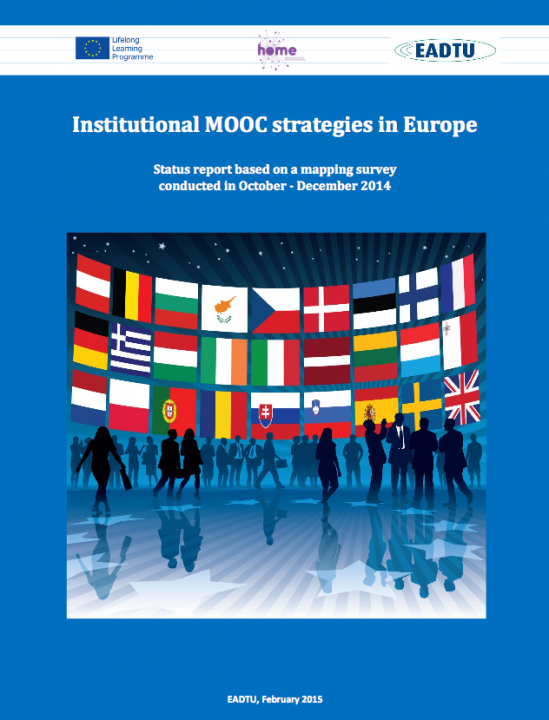Institutional MOOC strategies in Europe

Last week EADTU released the report "Institutional MOOC strategies in Europe". This research is conducted as part of the EU-funded project HOME (Higher education Online: MOOCs the European way) by Robert Schuwer and Darco Jansen.
This report on MOOCs intends to contribute to literature on MOOCs in Europe. Its specific aim is to present data on the perception and objectives of European higher education inst itutions on MOOCs and the main drivers behind the MOOC movement. In addition, the report makes a comparison with similar studies conducted in the United S tates in 2013 and 2014 and to data produced by the European University Association (EUA) between Octob er and December 2013. The report made clear that involvement is still increasing, but also that arguments to get involved differ from those in the US. The survey was conducted in October December 2014. In total 67 institutions responded out of 22 European countries representing in total about 2.8 millions of students.
The most interesting of the report is the difference with the US:
Some parts of the survey encompasses identical questions as used in the US surveys of 2013 and 2014. The results show large differences between both continents. A large majority of European higher education instit utions disagree with the statement that credentials for MOOC completion will cause confusion about higher education degrees while a majority in the US agrees. Next, more than 80% of European institutions agrees with the statement MOOCs are important for in stitutions to learn about online pedagogy while in the US it has decreased from 44% in 2013 to 28% in 2014. In the US the opinion is mostly neutral or disagree on the question if MOOCs are a sustainable method for offering courses , but in the EU more than half of the institutions agrees.
No feedback yet
Form is loading...